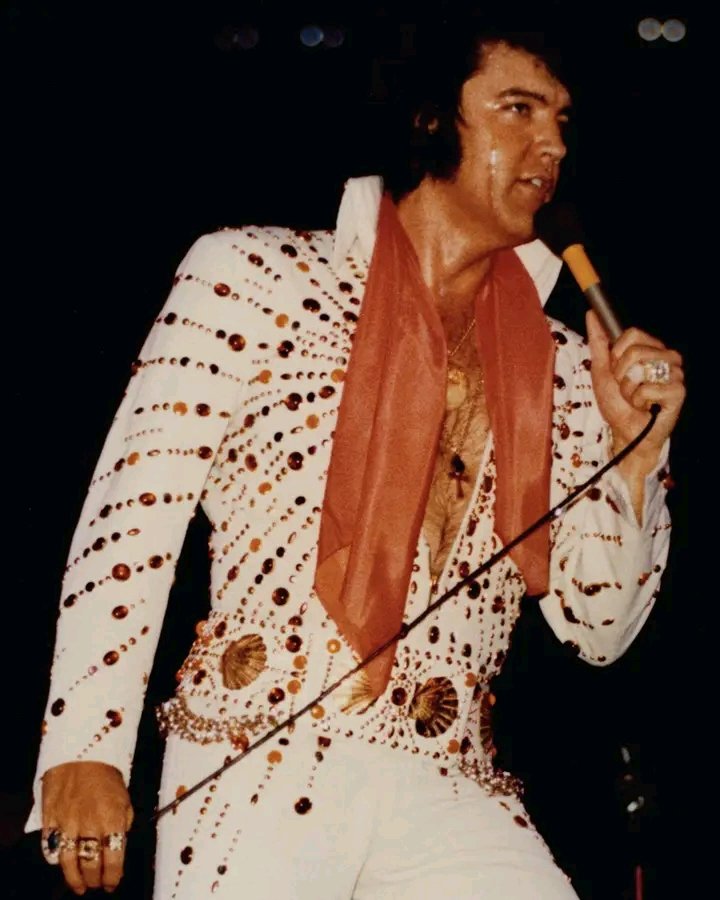“The King and the Couturier: Gianni Versace’s Admiration for Bill Belew and the Dream of Dressing Elvis Presley”
In the world of fashion, few figures embodied glamour, charisma, and visual daring quite like Gianni Versace. Known for his bold designs and unabashed love of theatricality, Versace once confessed a unique envy—not of another designer’s fame or empire, but of a singular opportunity: “The one thing that I envy is Bill Belew having the job of dressing Elvis Presley. That job I would’ve liked.”
This quote offers a revealing glimpse into Versace’s artistic sensibilities and the profound admiration he held for the visual legacy of Elvis Presley. To Versace, Elvis wasn’t just a rock ’n’ roll icon—he was a living canvas of style, drama, and spectacle. And Bill Belew, the man responsible for crafting many of Elvis’s most unforgettable stage outfits, held the enviable role of shaping the King’s public image through fashion.
Bill Belew, a designer for NBC and later Elvis’s personal costumer, began working with Presley in the late 1960s, most famously designing the sleek black leather outfit for the 1968 “Comeback Special.” From that point on, Belew was instrumental in creating Elvis’s iconic jumpsuits of the 1970s—complete with rhinestones, capes, embroidery, and peacock motifs. These looks became synonymous with Presley’s Vegas era, transforming his image into that of a mythic, almost superheroic performer. It was performance wear at its most extravagant—a philosophy that mirrored Versace’s own belief that fashion should be as bold and expressive as music itself.
For Gianni Versace, the visual spectacle of Elvis’s stagewear was an ideal marriage of art, fame, and excess. His own collections would go on to celebrate similar values: opulent fabrics, gold accents, daring cuts, and a sense of majesty. Like Belew, Versace understood how clothing could elevate a performer into a symbol—how fashion could crystallize the essence of a persona in the public imagination.
That Versace would have longed for the role of dressing Elvis is no surprise. Both men shared a belief in style as performance, in glamour as a form of empowerment. Elvis was the ultimate muse—a figure of rebellion, sensuality, and command. To design for him would have been, in Versace’s eyes, not just a professional triumph but an artistic dream fulfilled.
In the end, while Versace never had the chance to dress the King, his admiration for Bill Belew underscores the deep connections between fashion and music, costume and identity. It’s a tribute from one master of visual storytelling to another—a recognition that sometimes, the right outfit can help define a legend.
